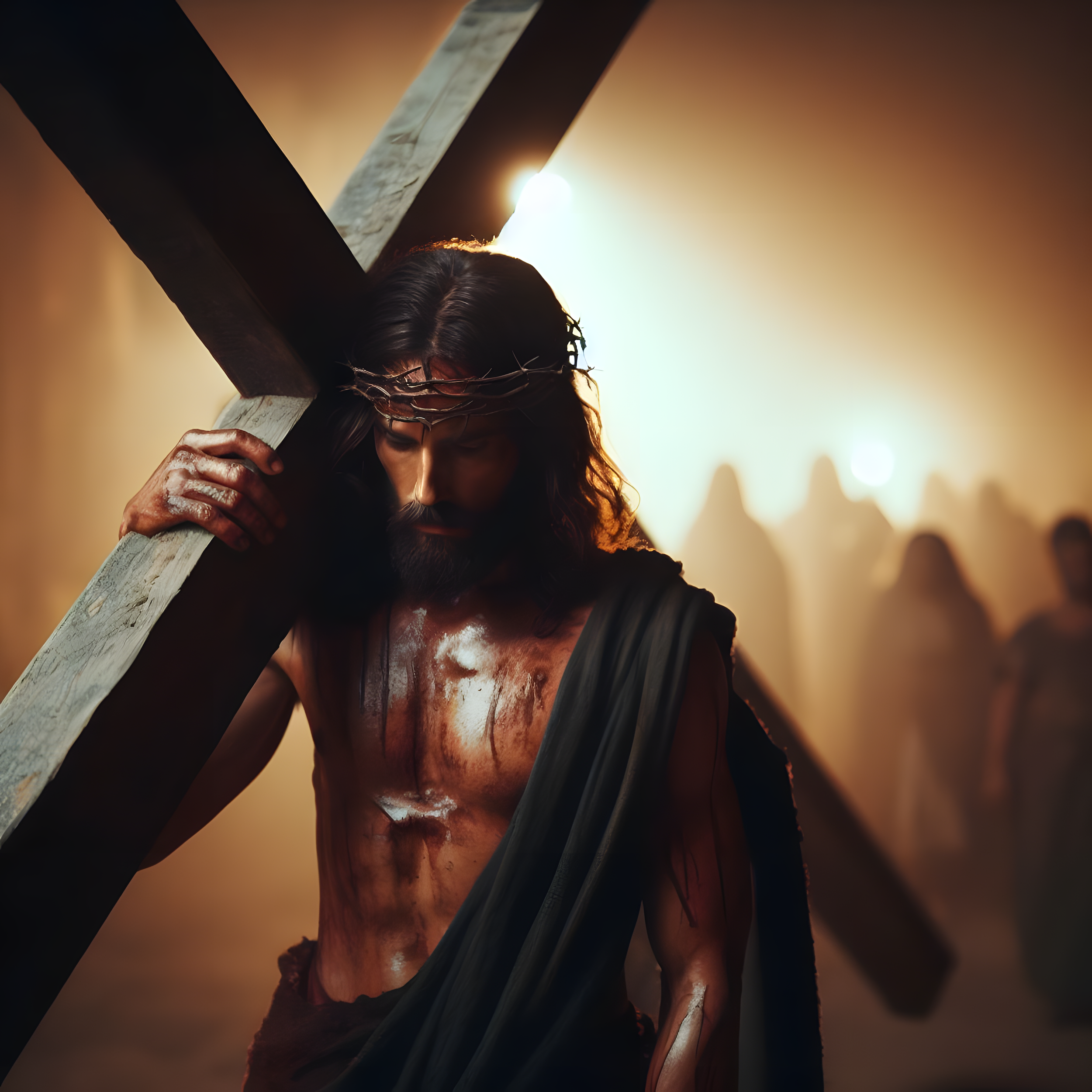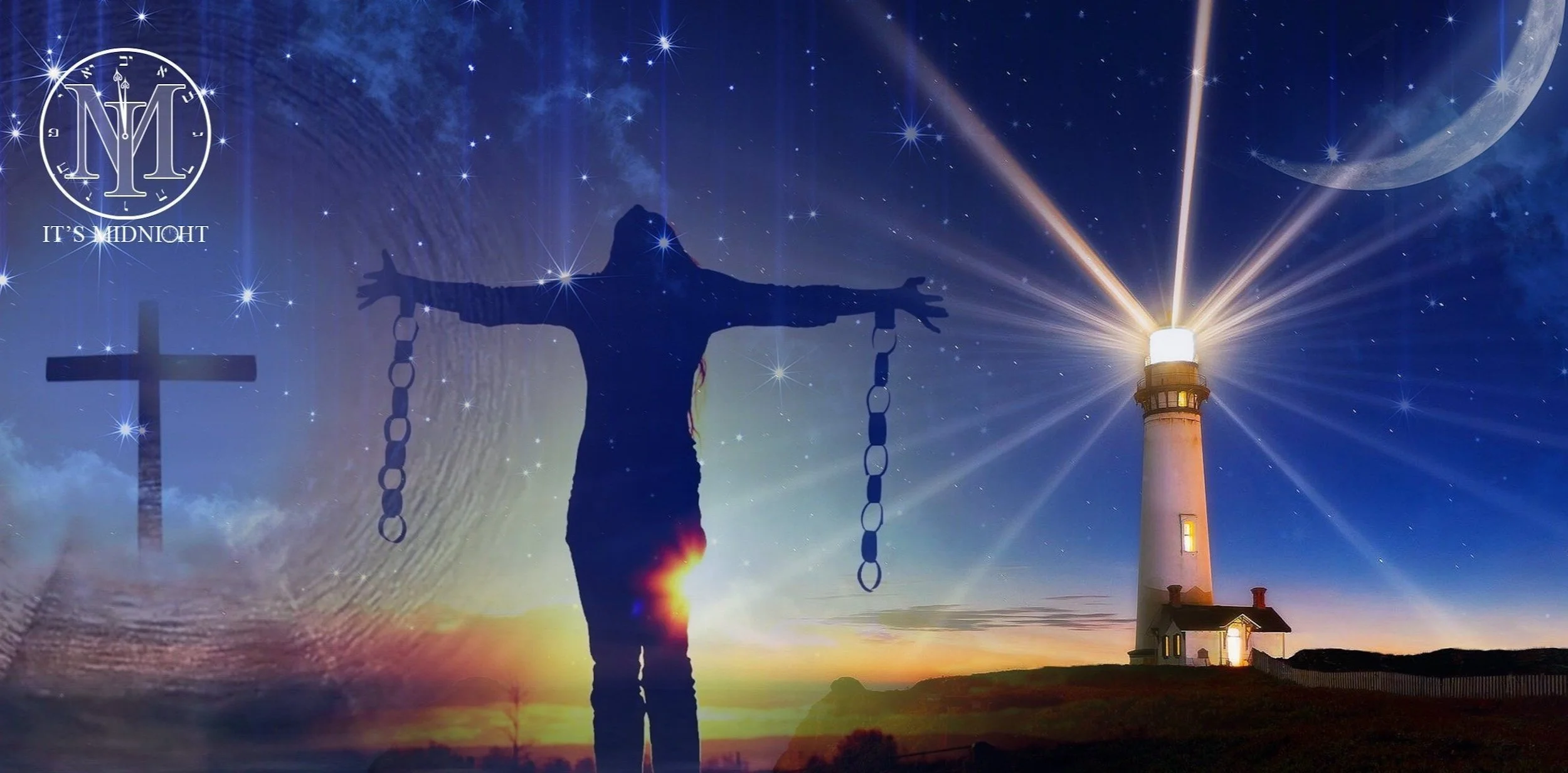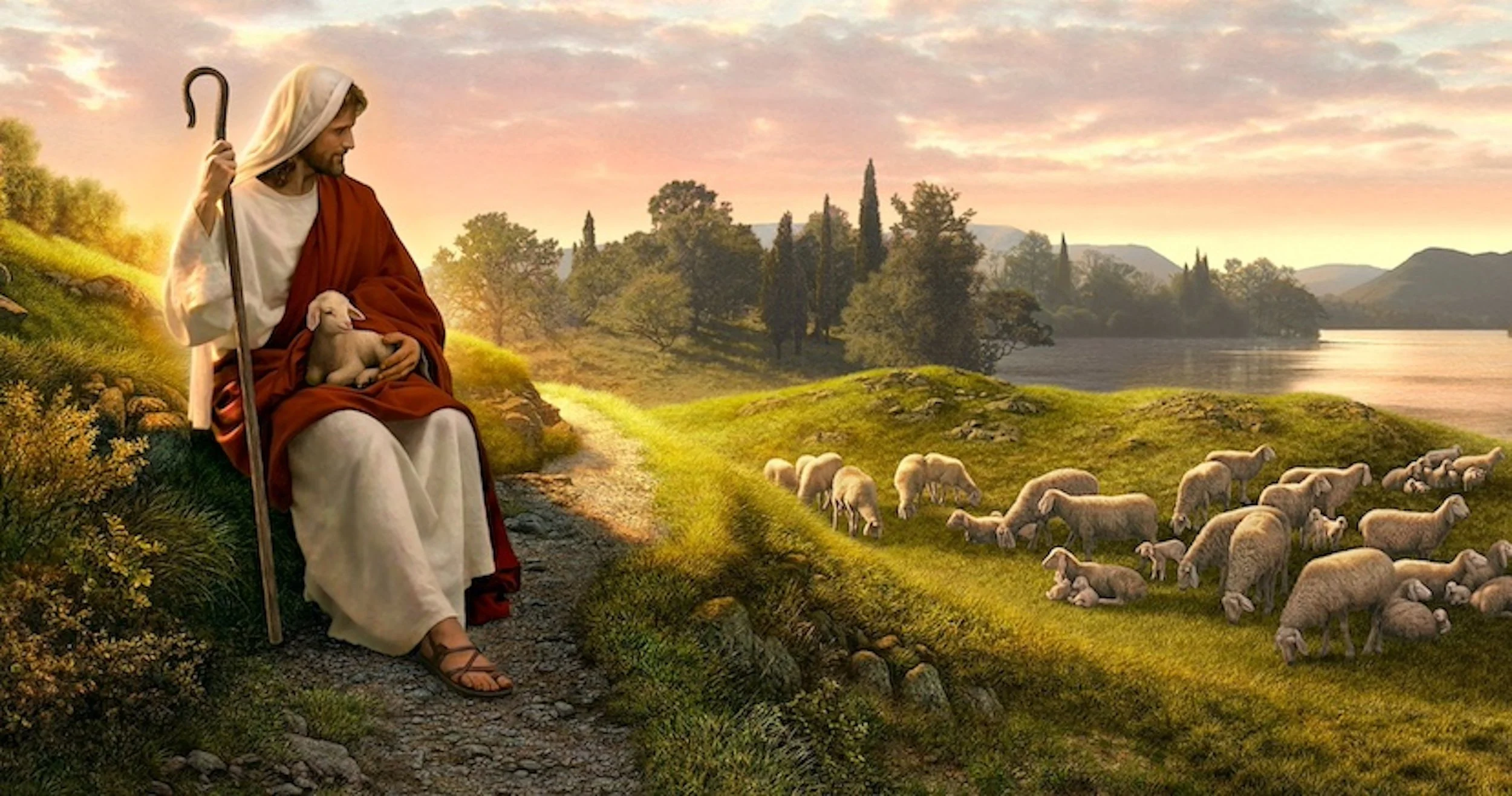part Five
Easter Displaces Biblical Feast of Firstfruits
Easter is a perfect worldly holiday, but don’t call it Firstfruits or Resurrection Day, call it Easter Bunny day. Call it fun for the kids and family day, but don’t call it Resurrection Day if you yourself are not willing to pick up your cross daily, deny your flesh moment by moment, and put it to death so that you can follow the One who gave His life on the crucifixion stake."
- Matthew 27:45-54 -
It is important to understand that Easter, the world and Christianity’s commemoration of Yahshua’s (Jesus’s) resurrection, was the man made traditional replacement nullifying the reality and value of the celebration of the biblical Feast of Firstfruits. (Leviticus 23:15-17) Sadly, the name Easter and its modern celebration are derived from an unholy root incorporating portions of pagan worship and pagan gods. There is a controversy as to what the name of that pagan god is, many say it is Ishtar, the fertility goddess − celebrations include the Easter bunny and Easter eggs, but in reality, “the devil, the ancient serpent laid eggs of deception.” The Bible says, “They hatch vipers’ eggs and spin a spider’s web; He who eats of their eggs dies, …” (Isaiah 59:5) Satan laid “viper's eggs” that hatched into so much deception, drawing multitudes of believers away from “the narrow holy path” following the true Jewish Messiah, and the true gospel message. (see Isaiah 59:5, Matthew 7:14) The celebration of Easter is a worldly celebrated event of Easter colors, Easter bunnies, Easter eggs, and childish desires that have nothing to do with the crucifixion of the flesh and all of its worldly desires in order that we are crucified spiritual “new creations” who will be resurrected as Yahshua (Jesus) our firstfruit was after His crucifixion. (2 Corinthians 5:17, 1 Corinthians 15:20) Easter’s carnal frivolity is an insult to the true Yahshua (Jesus) and the holy biblical day of resurrection. With one swipe of the hand, this man made tradition not only replaced the truth that the resurrection was the fulfillment of the Feast of Firstfruits; it also dramatically diminished and stripped away the powerful reality of beholding our sacrificial Passover Lamb and the requirement for us to take very seriously our daily walk. The Feast of Unleavened Bread is symbolic of the spiritual walk of denying ourselves by daily removing all leaven, the sinful flesh and its continual desires, from our life. As Apostle Paul said, “I count all things to be loss in view of the surpassing value of knowing Messiah Yahshua [Christ Jesus] my Lord, for whom I have suffered the loss of all things, and count them mere rubbish, so that I may gain Messiah,…that I may know Him and the power of His resurrection and the fellowship of His sufferings, being conformed to His death; if somehow I may attain to the resurrection from the dead.” (Philippians 3:8,10,11)
Churches have become seeker friendly for self seeking, self pleasing, self centered, worldly believers who believe that God will give them their best and most blessed life here on earth until the rapture comes and takes them to an even better life. For them Easter is a perfect worldly holiday, but don’t call it Firstfruits or Resurrection Day, call it Easter Bunny day. Call it fun for the kids and family day, but don’t call it Resurrection Day if you yourself are not willing to pick up your cross daily, deny your flesh moment by moment, and put it to death so that you can follow the One who gave His life on the crucifixion stake. Yahshua (Jesus) was the first fruit to be resurrected, His promise of resurrection is only to the remnant who follow in His footsteps through a crucified life. Yahshua (Jesus) specified how few would be able to enter His kingdom saying, “narrow is the gate and difficult is the way which leads to life, and there are few who find it.” (see Matthew 7:14, 16:24)
Yahveh is the Creator, the Holy Living God. He is the God of Abraham, Isaac, and Jacob, and the God and Father of our Savior Yahshua (Jesus) the Jewish Messiah. He does not change and His Word does not change."
- Malachi 3:6, John 3:16 -
He who is the author of truth has not changed, “He is the same yesterday, today, and forever.” (John 16:13) “Heaven and Earth will pass away but His Word will last forever.” (Matthew 24:35) The Almighty never authorized any changes to what He proclaimed in His written word or biblical calendar. (Matthew 24:35) Only the enemy, since the Garden of Eden, has put it into man's thoughts to question the validity and authority of God's Word, to doubt it, and to change it to suit one's own desires for what they crave of the things of this “world ruled by Satan". (see Genesis 3:1, John 14:30) Anyone who dares to change or add to His word, as Yahveh said, “will be proven a liar” and liars will not enter His kingdom. (see Proverbs 30:6, Revelation 21:8, 22:15 ) The devil, “the ancient serpent” himself has been changing Yahveh’s Word and will continually perpetuate lies to the end of this age. As it is written, “the serpent of old, called the Devil and Satan, deceives the whole world.” (Revelation 12:9) The restoration of paradise lost to sin, which is the Kingdom of Heaven, will be barred as the Garden of Eden was to anyone who is unauthorized, because they walk in the byproduct of believing “the father of lies”, which causes rebellion against Yahveh God's truth. (John 8:44) “The truth sets us free”, it opens our eyes, it opens our ears, it opens the prison doors that keep us in bondage to Satan’s deception, and promises resurrection power to be raised from the dead. (John 8:32, see Isaiah 42:7)
Satan’s age old strategy is to take the truth and taint it with his many pagan rooted lies to cunningly draw people's worship away from the One True God. Yahveh had warned Israel, and that warning is also to all Gentile believers who are joined together in worship of the Most High Living God through faith in His Son, the Jewish Messiah. He proclaimed, “take heed to yourself… that you do not inquire after their [pagan] gods, saying, ‘How did these nations serve their gods? I also will do likewise.’ You must not worship Yahveh your God in their way,…” (see Deuteronomy 12:30-32) The Holy One of Israel implored His people to remain at a great distance from the practices of the pagan nations around them. He admonished them to respond even to rumors regarding the unholy practices of the Gentiles entering the holy camp and worship of Yahveh. He continues to emphasize that all who seek righteousness “shall investigate and search out and inquire thoroughly” regarding any inkling of such forbidden compromises and “if it is true and the matter established that this abomination has been done among you [the mixing of pagan practices with the Almighty’s holy requirements]”, then all that was impure was to be “utterly destroyed” and given up as a sacrificial offering to Yahveh, who had placed these things under His sovereign ban, never to be touched again. (Deuteronomy 13:14,15)
Let's look at a brief history of the “ancient serpent’s” trail as he introduced pagan rooted changes to the Almighty’s biblical calendar regarding the holy Feasts of Passover, Unleavened Bread, and Firstfruits.
Constantine and the many to follow were anti-Semitic in nature and replaced the Jewish root of the pure Messianic faith with unholy pagan roots to distance and remove it from any affiliation with the God of Israel and the Jewishness of Yahshua the true Messiah"
The emperor Constantine who ruled from AD 306-337, was an avid sun worshipper. With a superficial attitude toward the Holy Scriptures, he conveniently fused parts of popular pagan worship of his empire with biblical truth and the Almighty’s divinely appointed biblical calendar. Many Christian doctrines evolved from this unholy fusion. We read in the Multimedia Encyclopedia… “Early Christians observed Easter on the same day as Passover (14-15 Nisan, a date governed by a lunar calendar, the biblical calendar). In the 2nd century, the Christian celebration was transferred to the Sunday following Passover the 14-15 Nisan. … The Council of Nicaea Changes the Date of Easter, 325 AD … At this meeting the question concerning the most holy day of Easter was discussed, and it was resolved by the united judgment … that this feast ought to be kept by all and in every place on one and the same day [Sunday]. … it appeared an unworthy thing that in the celebration of this most holy feast we should follow the practice of the Jews, … For we have it in our power, if we abandon their [biblical] custom, that we can prolong the due observance of this [man-made] ordinance [on the day of the worship of the Sun-Sunday] for future ages, …… Let us then have nothing in common with this detestable Jewish crowd; for we have received from our Savior a different way” (a way in place of and instead of the true Messiah (Christ). (See Footnote 1) These seeds of antisemitism is the seed of an anti messiah (antichrist) spirit that has been coming against the true Jewish Messiah all the way back to Constantine’s edicts perched on antisemitic pagan roots. This shows that Constantine and the many to follow, were anti-Semitic in nature and replaced the Jewish root of the pure Messianic faith with unholy pagan roots to distance and remove it from any affiliation with the God of Israel and the Jewishness of Yahshua the true Messiah.
Yahveh God’s biblical calendar is based on the moon, a lunar calendar. The third day after Passover when Yahshua was resurrected as the first fruit to rise from the dead, would vary from year to year. We must remember Messiah’s words, “For as Jonah was three days and three nights in the belly of the great fish, so will the Son of Man be three days and three nights in the heart of the earth.” (Matthew 12:40) The early messianic believers determined their date for the celebration of the resurrection of Yahshua (Jesus) appropriately by the date of the biblical Passover and the following Feast of Firstfruits. The progression away from pure biblical truth including the Almighty’s biblical calendar continued to dilute and infuse Christianity with more and more man-made pagan rooted customs, doctrines and traditions. By the time of the dark centuries of the Middle Ages (AD 476 to the beginning of the 14th century) the Scripture was not accessible to the majority of believers. When the Bible became available during the Reformation, the infallible authority of the Word of Yahveh was contested by the religious leaders of that day. They reinforced what Constantine had decreed. These leaders blatantly declared that tradition stood above Scripture and insisted that the authority of the church was not bound to the authority of the Scriptures. Thus the failure to observe Yahveh the Most High’s biblical calendar and mandates as He had commanded was openly stated to have been by the church’s own authority and not by the command of Messiah.
Let the world have their Easter but let Yahveh’s redeemed children, which are the born again righteous remnant, have Resurrection!"
It is written, “there is no lie in the truth.” Daniel was shown that the anti- messiah (antichrist) spirit would be at work long before the conclusion of the age changing Yahveh God’s appointed calendar. The angel Gabriel prophetically showed Daniel that the enemy would “attempt to change the sacred seasons and the law;” (Daniel 7:25) “Satan, called the ruler of this world” by Yahshua, made the world’s calendar based no longer on a lunar calendar but a solar calendar. (John 12:31) He changed the biblical holy days into worldly flesh pleasing holidays that the people of the world and most Christians share together. They may have put different spiritual meanings on them, but nevertheless they share the same unholy calendar dates as they participate and perpetuate this satanically inspired hybrid mixture. Let the world have their Easter but let Yahveh’s redeemed children, which are the born again righteous remnant, have Resurrection! It is written, “How can you say, ‘We are wise, and the [word of God] is with us’? Look, the false pen of the scribe certainly works falsehood.” (Jeremiah 8:8)
All these centuries Satan has been behind this arbitrary and devised plan of man, to keep Resurrection Day distanced from Yahveh’s biblical calendar. The progressive movement is literally Satan’s deceptive, enticing, successful agenda causing man to progress further and further away from the God of creation, the God of the Bible who is the Holy One of Israel, and His written word.
The enemy has done a masterful job of deceiving Christians all these centuries when they believed, perpetuated, and brought forth an inheritance of lies of this “hybrid Christianity”, passing it on from generation to generation."
Anyone who follows the truth, according to biblical precepts in obedience to our God and Savior’s word, are following Yahshua (Jesus) who fulfilled all the biblical feasts to the exact day and hour. Yahveh the Creator of Heaven and Earth says, “These are MY feasts. MY appointed times…” (see Leviticus 23:2,3) In essence, Satan, the ruler of this world is saying, “No, they are going to be MY appointed times. I am in charge, I gained authority over this world to “deceive the people”, and they are MY appointed holidays to deceive God’s children so that they will follow me without even knowing it.” (John 12:31, 2 Corinthians 4:4, Revelation 12:9) The enemy has done a masterful job of deceiving Christians all these centuries when they believed, perpetuated, and brought forth an inheritance of lies of this “hybrid Christianity”, passing it on from generation to generation. Now, at the end of the age Yahveh’s words through the prophet Jeremiah ring loud and clear, he declared, “The Gentiles shall come to [Yahveh] from the ends of the earth and say, “Surely our fathers have inherited lies, worthlessness and unprofitable things.” (Jeremiah 16:19) These lies are easily perpetuated because so many believers do not have a “love for the truth”, do not know the full counsel of the word of God through the Old and New Testaments, and are easily deceived as Paul warned, by “Satan who masquerades as an angel of light … and his servants who disguise themselves as servants [and preachers] of righteousness.” (see 2 Corinthians 11:14-15)
The lack of the “love of the truth” and the lack of "the fear and reverential awe of our Holy God and Savior” is the primary reason why so many believers have inherited and perpetuated falsehood. (see 2 Thessalonians 2:10, Proverbs 1:7) The Most High God said, “MY people perish for the lack of knowledge [the lack of the knowledge of the truth].” (Hosea 4:6) But even worse than that, as expounded by Apostle Paul, “God sends them a powerful delusion so that they will believe the lie.” (2 Thessalonians 2:10-12) They get their Easter bunnies, they get their Christmas trees, they get their Santa Clauses, but they don’t get the true Yahshua (Jesus). We've been lied to, and if we don't have a love for the truth, we are going to continue to believe a lie, walk in a lie, and Yahveh will give us over to thorough and total delusion. Many have been deceived and are deceiving themselves and others, but they are not deceiving Yahveh. Yahshua (Jesus) warns us all, “Watch out, take heed, that no one deceives you!” (Matthew 24:4)
The biblical holy days are a gift to meet with our Heavenly Father. As said, they are a prophetic preview of Yahshua (Jesus) who fulfilled these feast days. They are a spiritual roadmap of how to follow Him on the holy walk on “the narrow path”. However, you can have all this in order but if it does not lead you to the crucifixion stake and the necessity to submit and obey Yahshua’s (Jesus’s) mandate, “If any man would come after me, let him deny himself, and take up his cross daily, and follow Me. For whosoever would save his life shall lose it; but whosoever shall lose his life for my sake, the same shall save it,” it is still the flesh and its sin nature dressed up in counterfeit spiritual garments mixed with the world’s ways. In Yahveh’s sight it is “foreign garments” instead of “pure fine white linen” purchased through the blood of Yahshua (Jesus) that cleanses His children of all repentant sin and worldly ways.”
- Leviticus 23, Matthew 7:14, Luke 9:23-25, Zephaniah 1:8, Revelation 19:8 -
So many will stay in the world enjoying the world’s holidays, acting like the world, living like the world, but they are rejecting truth for error. They are choosing their flesh instead of the crucifixion stake. They are not choosing to have their lives hidden spiritually in Yahshua (Jesus) and to become one with Him in eternal bonds of love that lead to uncompromised truth. They are in a superficial form of religion that denies the power of the Holy Spirit. It is full blown apostasy. (see 2 Timothy 3:5, 4:3-4, 2 Thessalonians 2:1-3) As Apostle Paul warned, the great falling away was coming with “Satan masquerading as an angel of light”, “preaching another Yahshua (Jesus)”, “another gospel”, with seducing spirits distorting and bringing forth counterfeit “doctrines of demons”. (see 2 Thessalonians 2:2-9, 2 Corinthians 11:4,14, Acts 20:30, 1 Timothy 4:1) Grievously, this is the prophesied apostasy of many churches. It is a self endorsing world loving bless me club, rather than a place that the crucifixion stake where Yahshua’s blood poured out for us is magnified and exalted as the centerpiece with the necessity that we be crucified to this life and world to share in His sufferings. As it is written, “For to you it has been granted for Messiah’s sake, not only to believe in Him, but also to suffer on His behalf.” (Philippians 1:29) So we have two different gospel messages. One is the counterfeit and the other the true gospel. Apostle Paul warned, “Even from your own number men will arise and distort the truth in order to draw away disciples after them. So be on your guard! Remember that for three years I never stopped warning each of you night and day with tears.” (Acts 20:30-31) Paul prophetically saw these “seducing spirits” and “doctrines of demons” coming from Satan to draw away disciples from the truth. (see 1 Timothy 4:1)
Grievously, many professing believers will stand at the gates of heaven saying, 'Lord, Lord, did we not prophesy in your name, and cast out demons in your name, and do many mighty works in your name? And He will say ,“I do not know you or where you come from.” (Matthew 7:21-23, Luke 13:25) “You didn’t know Me personally or intimately, you did not follow Me on the narrow path. You did not want to count the cost to find out what pleases Me, much less walk carrying your crucifixion stake. You tried to save your life instead of dying daily to your flesh so that you could live in the Spirit as one with Me, growing up bearing My identity, and glorifying My Father through your crucified life. You did not do the will of My Father to bring Him praise, honor, and glory by your words, deeds, and actions.” (Author’s paraphrase - See Matthew 7:14, Luke 14:28,29, Ephesians 5:10, Matthew 16:24, Galatians 5:25, Romans 8:29) Yahshua (Jesus) asks us, “Why do you call Me, ‘Lord, Lord,’ and do not do what I say? “The wrath of God is coming upon the children of disobedience…” (Colossians 3:6) To repeat Messiah came to save us from ourselves and the coming wrath of God. Pray that you will be able to escape the judgments that are coming, because it will no longer be you who lives in your flesh nature but your life will be hidden in Yahshua (Jesus) ruled by His loving Spirit over your redeemed crucified life.
FOOTNOTE
J. Gelb and R. M. Whiting, Multimedia Encyclopedia, ver. 1 (New York: Grolier Electronic Publishing, 1992), s.v. “Easter.”























